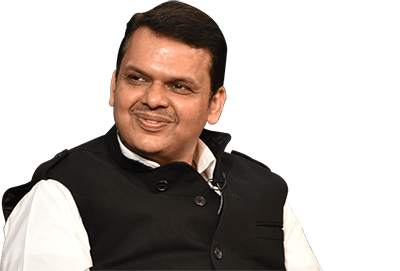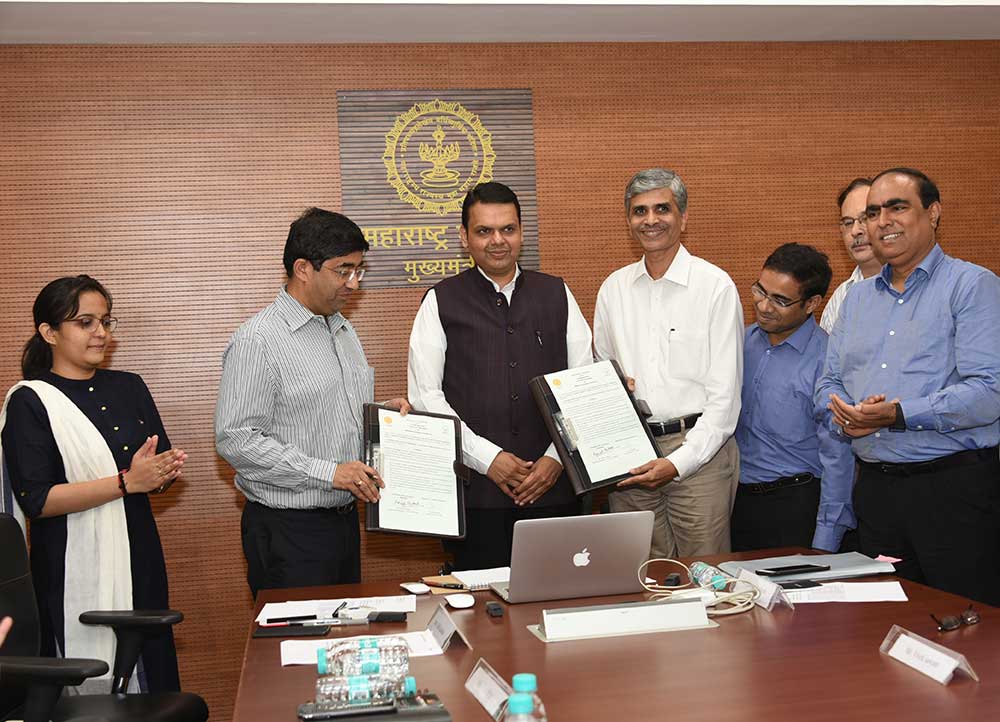Devendra took initiatives to adopt the Blockchain technology to ramp up E-Governance transparency.
Blockchain is currently the most advanced cryptography that is expected to revolutionize the ways transactions are done over the Internet. Blockchain will transform E-Governance to provide:
- Hackproof, tamperproof transactions
- Distributed information ensures damage proof data
- Facilitates collaboration and tracking of all kinds of transactions and interactions from anywhere and without the need of any intermediary.
Initially, the areas where Blockchain will be used are financial inclusion, land records, asset transactions, supply-chain financing, goods and farm insurance, and motor vehicle registration.
Empowering women in villages through the Digital India initiative.
“Partners for Urban Knowledge Action and Research (PUKAR), a Mumbai-based independent research collective was involved to partner the government in its efforts to increase digital literacy and access to e-governance in the tribal villages of Maharashtra.”
“Through PUKAR the government provided training and help to the villagers to secure the benefits meant for them under various government welfare schemes and become more aware of their rights, with an emphasis on uplifting women, including increasing their participation in Panchayats and Gram Sabhas.”
E-inclusion to close the gaps in Digital India!
Maharashtra is helping to close the gaps in Digital India by not only providing low-cost and easy-access technology to villagers but also educating them on how and why they should use them.
Bringing transparency in the real estate sector
After coming to power Devendra Fadnavis had taken a series of measures to bring transparency and increase the ease of doing business in the real estate sector.
As a result, the builders and developers are now able to obtain permission to start construction within seven days from their respective municipal authorities or district authorities if the building plan submitted by them is in accordance with any of the 57 building designs approved by the government.
Earlier, they would have to run around several departments to secure their NOC, which would lead to corruption.
Besides this, the CM had announced a higher floor space index (FSI) for buildings meant for industrial and educational activities and also decentralized the powers to grant such FSI to the district collector level. Earlier files to grant higher FSI for industrial and educational activities had to be approved by the Chief Minister only.
Keeping ahead through technology
Accountability, efficiency, transparency, and inclusion are the cornerstones of good governance. In today’s time, good governance is also about quick processing of service request and providing error-free information in a fast and predictable manner. Awareness and timely adoption of effective technologies are absolutely critical to living up to the expectations of the citizens.
Artificial Intelligence (AI), Internet-of-Things (IoT), and Big Data are among the leading technologies adopted by the Govt. of Maharashtra to achieve rapid developments.
AI
Artificial Intelligence or AI is also known as machine intelligence which is comparable to only human intelligence but delivered through computer-controlled systems. So the advantage of using AI is performing tasks that require human intelligence but without human errors and at a much higher speed.
March of 2019 saw the Govt. of Maharashtra and the NitiAyog jointly hosting a meet named as AI Innovation Challenge 2019. The participants that included the startups, MSMEs and the dignitaries from the Maharashtra governments witnessed many unique solutions based on AI to make great impacts in the fields like agriculture, education, healthcare, and smart cities.
The solutions are under evaluation for large scale applications through the partnerships between the companies and the Govt. of Maharashtra.
Leveraging the power of AI will provide better governance in the sense that it will more efficiently detect frauds, predict new opportunities and proactively identify the areas that need intervention.
The Govt. of Maharashtra has already started using an AI-based conversation chatbot in its initiative called ‘Aaple Sarker’(Right to Services) which provides conversational access to information regarding 1400 services managed by the state government.
IoT
IoT helps to automatically connect devices with devices and devices with people using the Internet. This technology has numerous applications that are the basis of smart city initiatives by the Govt. of India to improve the quality of life of the citizens.
It uses low-cost devices (RFID or WiFi) to transmit any type of real-time data like temperature, vibrations, humidity, location, movement, presence, pressure, light, sound, etc.
IoT does away with human dependability and human errors. For example, street lights can send replacement signals, pressure sensors can send alerts of pipe leakage, the police station can get alerts of burglary/robbery, and so on.
Big Data
Data is any type of information – text, graphics, image, video, etc. In the computer system, all information is stored, invoked, and referred to as data.
Transformation of old government information and records into digital data as well as the daily feeding of new information lead to a huge amount of data that grows exponentially with time. This is called big data.
Efficient handling of this enormous data is a challenge but provides a lot of benefits in return. Management of big data goes hand in hand with the concept of modernisation and online facilities for the citizens.
Many types of big data analytics help to understand complex urban systems and take the right measures in time.




